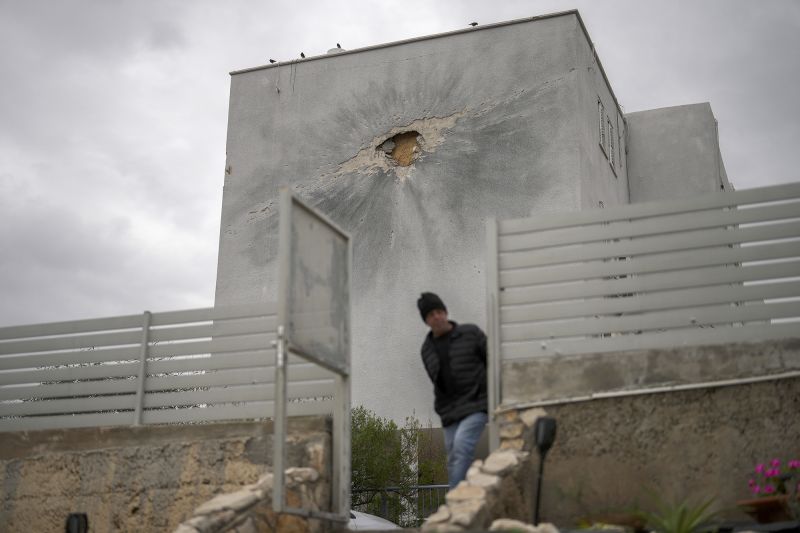 Israel agreeing to a truce in Lebanon could signify several aspects:
1. Cessation of Hostilities: The most direct meaning is a cessation or pause of military operations or hostilities between Israel and Lebanon. A truce implies both sides have agreed to stop fighting temporarily.
2. Potential Resolution of Conflict: The truce might signify a possible move towards negotiation and peaceful resolution of long-standing issues between the two nations. While it does not necessarily mean an end of all conflicts, it does signal a desire to stop violence, at least temporarily.
3. Space for Dialogue: A truce can provide room for diplomatic negotiations and dialogue between the two parties, which can be facilitated by international mediators or organizations such as the United Nations.
4. Humanitarian Respite: A truce can serve as a temporary relief from violence for citizens in both countries, allowing for the entry of aid and relief supplies, and facilitating the return of displaced persons.
5. International Pressure: A truce can sometimes be the result of international pressure or as part of negotiations with other international parties who have an interest in the peaceful resolution of the conflict.
Bear in mind, the truce’s exact implications will depend on the conditions agreed upon by both parties and how effectively they abide by those terms. The success of the truce also hinges on trust and cooperation between the two sides. Ultimately, a truce is a positive step towards peace, but it is a small part of a much more complex process.
Israel agreeing to a truce in Lebanon could signify several aspects:
1. Cessation of Hostilities: The most direct meaning is a cessation or pause of military operations or hostilities between Israel and Lebanon. A truce implies both sides have agreed to stop fighting temporarily.
2. Potential Resolution of Conflict: The truce might signify a possible move towards negotiation and peaceful resolution of long-standing issues between the two nations. While it does not necessarily mean an end of all conflicts, it does signal a desire to stop violence, at least temporarily.
3. Space for Dialogue: A truce can provide room for diplomatic negotiations and dialogue between the two parties, which can be facilitated by international mediators or organizations such as the United Nations.
4. Humanitarian Respite: A truce can serve as a temporary relief from violence for citizens in both countries, allowing for the entry of aid and relief supplies, and facilitating the return of displaced persons.
5. International Pressure: A truce can sometimes be the result of international pressure or as part of negotiations with other international parties who have an interest in the peaceful resolution of the conflict.
Bear in mind, the truce’s exact implications will depend on the conditions agreed upon by both parties and how effectively they abide by those terms. The success of the truce also hinges on trust and cooperation between the two sides. Ultimately, a truce is a positive step towards peace, but it is a small part of a much more complex process.
Israel has agreed to a truce in Lebanon. Here’s what that means

 Israel agreeing to a truce in Lebanon could signify several aspects:
1. Cessation of Hostilities: The most direct meaning is a cessation or pause of military operations or hostilities between Israel and Lebanon. A truce implies both sides have agreed to stop fighting temporarily.
2. Potential Resolution of Conflict: The truce might signify a possible move towards negotiation and peaceful resolution of long-standing issues between the two nations. While it does not necessarily mean an end of all conflicts, it does signal a desire to stop violence, at least temporarily.
3. Space for Dialogue: A truce can provide room for diplomatic negotiations and dialogue between the two parties, which can be facilitated by international mediators or organizations such as the United Nations.
4. Humanitarian Respite: A truce can serve as a temporary relief from violence for citizens in both countries, allowing for the entry of aid and relief supplies, and facilitating the return of displaced persons.
5. International Pressure: A truce can sometimes be the result of international pressure or as part of negotiations with other international parties who have an interest in the peaceful resolution of the conflict.
Bear in mind, the truce’s exact implications will depend on the conditions agreed upon by both parties and how effectively they abide by those terms. The success of the truce also hinges on trust and cooperation between the two sides. Ultimately, a truce is a positive step towards peace, but it is a small part of a much more complex process.
Israel agreeing to a truce in Lebanon could signify several aspects:
1. Cessation of Hostilities: The most direct meaning is a cessation or pause of military operations or hostilities between Israel and Lebanon. A truce implies both sides have agreed to stop fighting temporarily.
2. Potential Resolution of Conflict: The truce might signify a possible move towards negotiation and peaceful resolution of long-standing issues between the two nations. While it does not necessarily mean an end of all conflicts, it does signal a desire to stop violence, at least temporarily.
3. Space for Dialogue: A truce can provide room for diplomatic negotiations and dialogue between the two parties, which can be facilitated by international mediators or organizations such as the United Nations.
4. Humanitarian Respite: A truce can serve as a temporary relief from violence for citizens in both countries, allowing for the entry of aid and relief supplies, and facilitating the return of displaced persons.
5. International Pressure: A truce can sometimes be the result of international pressure or as part of negotiations with other international parties who have an interest in the peaceful resolution of the conflict.
Bear in mind, the truce’s exact implications will depend on the conditions agreed upon by both parties and how effectively they abide by those terms. The success of the truce also hinges on trust and cooperation between the two sides. Ultimately, a truce is a positive step towards peace, but it is a small part of a much more complex process.

